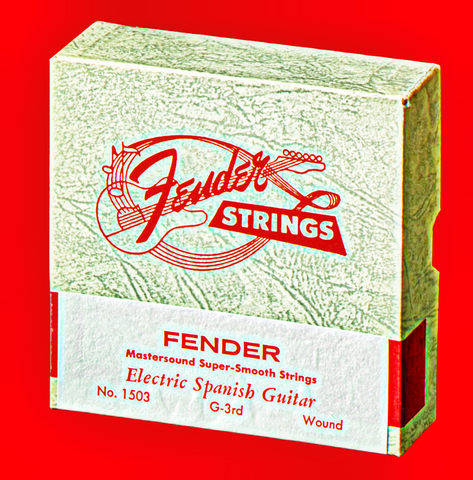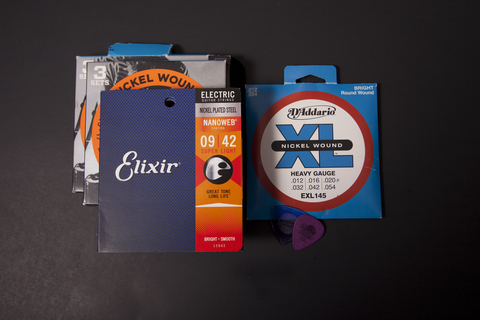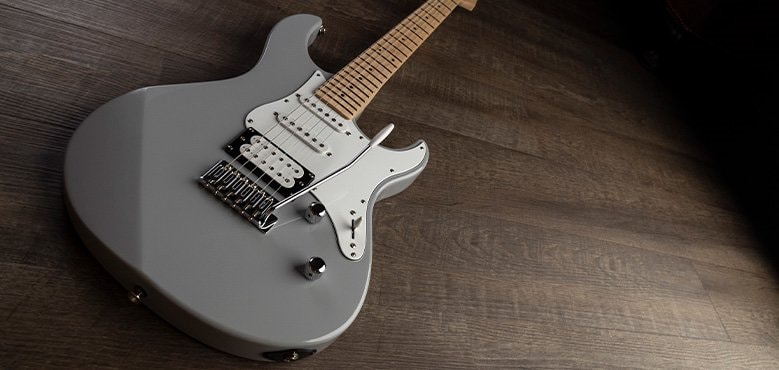Redefining Your Riffs: How Electric Guitar Strings Shape Your Sound

Have you ever wondered how electric guitar strings impact the sound of your instrument? From the gauge and material to the coating, each aspect plays a role in defining your unique sound.
In this article, we will explore the different types of electric guitar strings, how to choose the right ones for your playing style and genre, and the importance of proper maintenance. Get ready to redefine your riffs and discover how electric guitar strings can elevate your playing experience.
Key Takeaways:
- The gauge, material, and coating of electric guitar strings all play a role in shaping your sound.
- Knowing your playing style, preferred genre, and personal preference can help you choose the right electric guitar strings.
- Proper maintenance and regular string changes are essential for optimal playability and sound quality.
What Are Electric Guitar Strings?
Electric guitar strings are an essential component of both acoustic and electric guitars, producing the tones and sound that define a player’s style.
These strings come in various gauges, materials, and winding configurations, each influencing the guitar’s overall tone and playability.
The gauge of a string determines its thickness, with lighter gauges offering easier bending and more flexibility, while heavier gauges produce a fuller sound with more sustain.
Choosing the right material, whether it be nickel, stainless steel, or bronze, can greatly impact the warmth or brightness of the guitar’s sound.
The way strings are wound, such as roundwound or flatwound, can affect the feel and tone of the instrument.

How Do Electric Guitar Strings Affect Your Sound?
The choice of electric guitar strings significantly impacts the sound and tone produced by the instrument, influencing the overall musical experience for both the player and the audience.
In terms of electric guitar strings, one of the key factors to consider is the gauge of the strings. Gauge refers to the thickness of the strings, which affects not only the playability but also the tonal characteristics.
Lighter gauge strings typically produce brighter tones and are easier to bend, making them ideal for genres like rock and blues. On the other hand, heavier gauge strings offer a richer, fuller sound, often preferred by jazz and metal guitarists.
Gauge of the String
The gauge of the string, referring to its thickness or diameter, plays a crucial role in determining the playability, tonal characteristics, and overall feel of the electric guitar.
In terms of string gauge, thinner strings allow for easier bending and fretting, making them ideal for players who prefer a lighter touch and smooth playability. On the other hand, medium gauges strike a balance between flexibility and stability, offering a versatile option suitable for various genres. Thick gauges, while providing a fuller tone and more sustain, require more finger pressure for fretting and bending, catering to players with a heavier playing style or those looking for a powerful sound.
Material of the String
The material of the string, whether steel, nickel, or bronze, significantly affects the tonal quality, durability, and resonance of electric guitar strings.
Steel strings are known for their brightness and crispness, making them ideal for rock and metal genres. They offer excellent sustain and are less prone to corrosion, enhancing their longevity. On the other hand, nickel strings provide a warmer tone with a smoother feel, perfect for jazz and blues styles. Bronze strings, although less common on electric guitars, deliver a rich and mellow sound, adding depth to acoustic-electric setups.
In terms of intonation and fret wear, steel strings tend to put more stress on the frets due to their higher tension, which can affect intonation if not properly set up. Nickel strings offer a balanced tension that is gentle on the frets, promoting better intonation stability over time. Bronze strings, being softer, may wear faster but generally cause less fret wear, making them a good choice for players who prefer a softer touch.
Popular string brands like D’addario and Elixir offer a wide range of options in each material, catering to various playing styles and preferences. Whether you prioritize durability, tone, or ease of play, choosing the right string material is crucial in shaping your sound and playing experience.
Coating of the String
The coating of electric guitar strings, including options like silk-wrapped or core coatings, can enhance durability, reduce string noise, and provide a smoother playing experience for guitarists.
One of the key benefits of coated strings is their impressive longevity. The coating helps to protect the strings from dirt, sweat, and oil build-up, extending their lifespan significantly. The smooth surface reduces friction during playing, which not only enhances playability but also reduces finger squeak and unwanted string noise.
In terms of the differences between silk-wrapped and core coatings, silk-wrapped strings have a softer feel due to the silk layer on the winding. On the other hand, core coatings, like those used by Elixir and Paradigm, involve applying a protective layer directly onto the string’s core wire, offering robust protection and preserving the tone quality over the long term.
What Are the Different Types of Electric Guitar Strings?
Electric guitar strings come in various types, such as Monel Wrap, Retro Monel Wrap, and other specialised variations, each offering unique tonal qualities and characteristics to suit different playing preferences.
Monel Wrap strings are known for their warm and rich sound, making them a popular choice among blues and rock guitarists. The use of Monel, a nickel-copper alloy, ensures durability and resistance to corrosion, resulting in a longer lifespan compared to traditional strings. On the other hand, Retro Monel Wrap strings combine the vintage tone of Monel with modern technology, providing a balance between classic sound and enhanced playability.
For those seeking a brighter and crisper tone, stainless steel strings are a great option. Their high-output characteristics make them ideal for genres like heavy metal and hard rock. In contrast, flatwound strings offer a smooth feel and mellow sound, perfect for jazz and traditional blues styles.
Nickel-Plated Steel Strings
Nickel-plated steel strings are a popular choice among guitarists for their balanced tone, bright sound, and durability, making them versatile options for various music genres and playing styles.
Nickel-plated steel strings are known for their resilience and resistance to corrosion, ensuring they maintain their tone and playability for extended periods. The nickel-plating enhances the strings’ longevity, making them a cost-effective investment for musicians. Many players appreciate how these strings maintain a consistent tone, whether they are strummed gently or played with vigour, providing versatility across different playing techniques. Popular brands like Ernie Ball and NYXL offer a wide range of gauges to suit different preferences and playing styles, allowing guitarists to find the perfect strings for their desired tuning.
Stainless Steel Strings
Stainless steel strings offer a distinct bright and crisp tone, excellent corrosion resistance, and increased durability, making them ideal for players seeking clarity and longevity in their string choice.
Players who enjoy a loud and punchy sound often gravitate towards stainless steel strings due to their vibrant projection and sustain. When compared to nickel-wound or phosphor bronze strings, stainless steel strings tend to produce a more focused tone with pronounced highs and tight lows, creating a well-balanced sound across the frequency spectrum. Notable brands like Curt Mangan are known for their high-quality stainless steel strings that deliver exceptional playability and consistency, making them a popular choice among professional musicians.
Pure Nickel Strings
Pure nickel strings are known for their warm, vintage tone, smooth feel, and excellent intonation, making them a preferred choice for players looking to achieve classic and mellow guitar sounds.
Many guitarists opt for pure nickel strings due to their ability to deliver that old-school, rich sound associated with genres like blues, jazz, and classic rock. The distinctive tonal characteristics of these strings enhance the overall warmth and depth of your instrument, adding a touch of nostalgia to your playing. Whether you are jamming on a vintage guitar or a modern instrument, brands like Chromes offer a wide selection of pure nickel strings to suit different scale lengths and playing styles.
Flatwound Strings
Flatwound strings are favored by jazz guitarists for their smooth texture, mellow tone, and reduced finger noise, offering a unique playing experience and tonal quality distinct from roundwound strings.
These strings are wound in a flat manner around the core wire, resulting in a smooth surface that prevents any unwanted noise during slides or position shifts.
One of the key advantages of flatwound strings is their durability; they tend to last longer compared to roundwound strings due to their construction.
Brands like Paradigm have gained popularity for their high-quality flatwound strings made of materials that enhance the warm, rich tones preferred in jazz music.
Half-Round Strings
Half-round strings combine the smooth feel of flatwound strings with the brighter tone of roundwound strings, offering players a balanced hybrid option that blends the best of both worlds for versatile playing styles.
This unique combination results in strings that are not as smooth and mellow as traditional flatwounds, yet not as bright and aggressive as roundwounds. Players who prefer a warmer sound compared to regular roundwounds but still want some brightness find half-round strings a perfect choice.
Brands like Optiweb have excelled in crafting high-quality half-round strings that cater to diverse player preferences. The sound produced by these strings is distinct, striking a balance between the warmth of flatwounds and the clarity of roundwounds.
How to Choose the Right Electric Guitar Strings?
Selecting the right electric guitar strings involves considering factors such as playing style, preferred genre of music, and personal preferences, ensuring that the strings complement the player’s individual sound and performance needs.
When choosing electric guitar strings, the material of the strings plays a crucial role in determining the tone and playability. For example, nickel-plated steel strings offer a balanced and bright tone suitable for rock and pop genres, while pure nickel strings deliver a warmer, vintage sound ideal for blues and jazz. On the other hand, stainless steel strings provide durability and clarity, often preferred by heavy metal and hard rock enthusiasts.
It’s important to explore different brands as well, as each brand may offer unique characteristics in terms of tone, longevity, and feel. Experimenting with various gauges and tensions can also help in finding the perfect match for your playing style and preferences.

Playing Style
Your playing style, whether aggressive, gentle, or somewhere in between, should influence your choice of electric guitar strings to ensure optimal playability, comfort, and tonal expression.
Aggressive players, known for their powerful attack and punchy sound, benefit from heavy-gauge strings that can withstand intense strumming and bending without losing clarity. Recommended options include D’addario EXL117 Nickel Wound Electric Guitar Strings.
On the other hand, gentle players who prefer smooth, mellow tones may opt for lighter-gauge strings that offer ease of bending and articulation. Consider trying D’addario EXL120 Nickel Wound Electric Guitar Strings for a balanced sound and comfortable feel on the fretboard.
Genre of Music
The genre of music you primarily play, whether rock, blues, jazz, or country, should guide your selection of electric guitar strings to achieve the desired tonal characteristics, responsiveness, and performance for your specific musical style.
For rock music enthusiasts, your strings should offer durability and sustain to handle powerful riffs and heavy distortion. Opt for NYXL strings known for their strength and tuning stability.
Blues players may prefer warmer tones with a smooth feel; strings with a nickel-coated winding on the core can enhance expressiveness and articulation.
Jazz musicians often look for strings that deliver a clear, mellow sound with a rich low end; flatwound strings can provide that classic jazzy tone.
Personal Preference
Ultimately, personal preference plays a significant role in selecting electric guitar strings, allowing players to choose the gauge, material, and coating that best match their tonal preferences, comfort levels, and performance requirements.
When considering electric guitar strings, one popular brand that offers a wide range of options is Elixir. Their strings are known for their longevity and playability, making them a favourite among many guitarists.
Players are encouraged to experiment with different string materials such as nickel-plated steel, stainless steel, or even pure nickel to find the sound that resonates with their playing style.
The coating on strings also influences their durability and feel, with choices ranging from uncoated to specialised coatings that enhance longevity without compromising tone.
How to Maintain and Change Your Electric Guitar Strings?
Proper maintenance and regular string changes are essential for preserving the sound quality, playability, and longevity of your electric guitar strings, ensuring a consistent and enjoyable playing experience over time.
In terms of maintaining durability and tuning of your electric guitar strings, it’s crucial to regularly clean them after each session. Use a soft, lint-free cloth to wipe down the strings and fretboard, removing any dirt, sweat, or oils that can accumulate and affect the sound quality. Changing strings every 1-3 months, depending on the frequency of use, helps prevent the buildup of grime and corrosion, keeping your guitar sounding fresh and vibrant.
Cleaning and Wiping Down Strings
Regularly cleaning and wiping down your electric guitar strings with a soft cloth or string cleaner helps remove dirt, sweat, and debris that can affect the tone, playability, and lifespan of the strings.
Keeping your strings clean is essential for maintaining the overall quality of your instrument. Dirt and grime build-up not only dull the sound but can also lead to premature wear and tear. The coating on guitar strings can wear off faster if they are not cleaned regularly, affecting both sound and durability.
To ensure optimal intonation and tonal clarity, consider investing in specialised string cleaning products like Dunlop Formula 65 String Cleaner or Ernie Ball Wonder Wipes. These products are designed to gently remove build-up without damaging the strings, prolonging their lifespan.
Changing Strings Regularly
Frequent string changes, based on your playing frequency and style, help maintain optimal tone, intonation, and playability, ensuring that your electric guitar always delivers the desired sound quality and performance.
Regularly changing your strings not only keeps your guitar sounding fresh but also prevents the build-up of dirt and grime, extending the lifespan of your instrument.
Choosing the right core and material for your strings can significantly impact your tone, with options like roundwound providing a bright sound and flatwound offering a smoother feel.
Experts recommend changing strings every 1-3 months for casual players, while frequent performers may benefit from string changes every 2-4 weeks.
Properly Storing Guitar and Strings
Properly storing both your guitar and spare strings in a controlled environment, away from extreme temperatures and humidity, helps preserve the integrity, tuning stability, and longevity of the instrument and strings.
In terms of storing guitars, it is crucial to keep in mind that different types of guitars, such as acoustic, electric, or bass, may require slightly varied conditions. Consider utilising a quality guitar case or a guitar stand to protect your instrument from accidental bumps or falls. Also, maintaining proper humidity levels, ideally between 40-50%, can prevent wood warping or cracking.
Do Electric Guitar Strings Affect the Playability of Your Guitar?
Yes, electric guitar strings significantly impact the playability of an instrument, influencing factors such as string tension, comfort, and response, all contributing to the overall playing experience for guitarists.
In terms of electric guitar strings, the core and winding design play a crucial role in determining the feel and sound of the strings. For instance, the core provides the foundation for the string, dictating its tension and flexibility, while the winding material influences the tonal quality and durability. Brands like Ernie Ball have mastered the art of producing various types of strings, including pure nickel, stainless steel, and hybrid sets, catering to different playing styles and preferences.
Frequently Asked Questions
What role do electric guitar strings play in shaping my sound?
Electric guitar strings are a crucial component in defining the tone and character of your riffs. The type, material, and gauge of your strings can greatly impact the sound and feel of your playing.
How can I choose the right electric guitar strings for my playing style?
The best way to determine the right strings for you is by experimenting with different types and gauges. Consider factors such as genre, technique, and personal preference when selecting strings.
What are the different types of electric guitar strings available?
There are various types of electric guitar strings, including nickel-wound, stainless steel, pure nickel, and coated strings. Each type offers a unique sound and feel, so it’s essential to try different options to find the right fit for you.
How do different string gauges affect my sound?
String gauge refers to the thickness of the strings, and it can greatly impact your sound. Thicker strings produce a fuller and warmer tone, while thinner strings offer a brighter and more responsive sound. Do I need to change my electric guitar strings regularly? It’s recommended to change your strings every 3-4 months or when they start to feel dull and lose their tone. Regularly changing strings can help maintain the quality of your sound and prevent breakage.
Can I use the same strings for all types of electric guitars?
While it’s possible to use the same strings for different electric guitars, it’s essential to consider the scale length and bridge type of your guitar. Strings designed for a specific scale length and bridge type will provide the best sound and playability.
Looking to finesse your technique? Interested in a popular style – like the blues? Or eager to flex your electric guitar skills? You’ll learn it all on our expert-led Elevate courses for guitar.
From the blog

Rockstars in Training: The Best Kids’ Electric Guitars for 2024

Redefining Your Riffs: How Electric Guitar Strings Shape Your Sound


